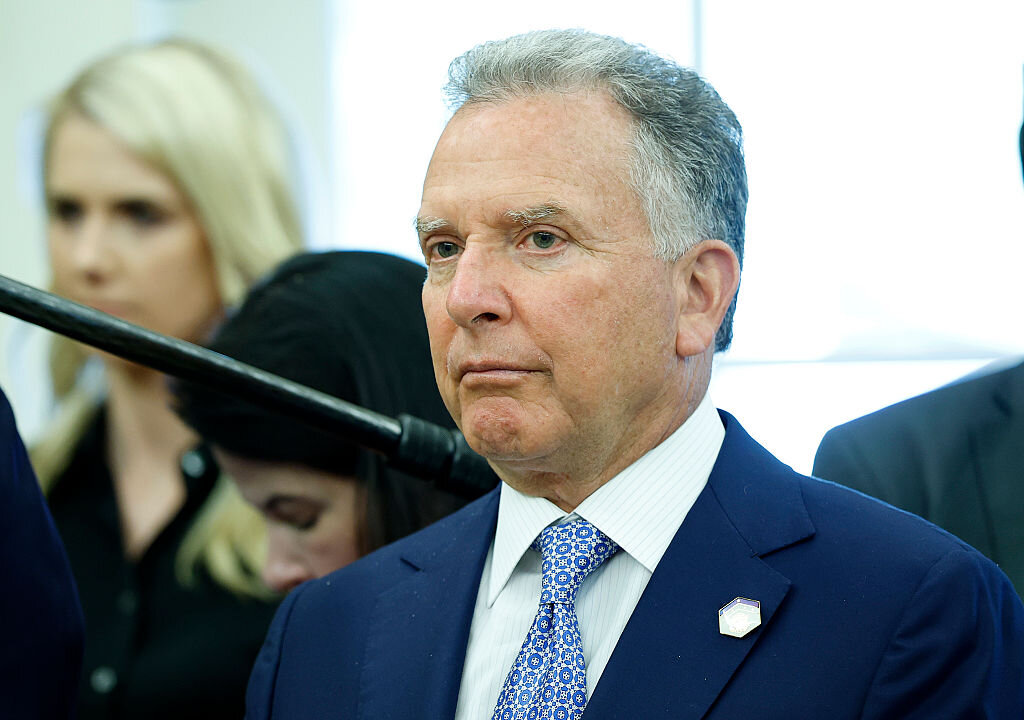As tensions rise in one of the world's most volatile regions, U.S. Special Envoy Steve Witkoff has pulled the American negotiating team out of Qatar, halting crucial ceasefire discussions with Hamas. The
Did You Know
Cows have best friends and can become stressed when separated from them.
?
AD
decision comes amid escalating violence in Gaza, where reports of "mass starvation" have been raised by over 100 aid organizations. This latest move underscores the Trump administration's growing frustration with Hamas's perceived lack of good faith in negotiating terms to end the ongoing conflict.
The U.S. has been at the forefront of mediating efforts between Israel and Hamas, with Witkoff labeling the group's approach to the talks as uncooperative. His remarks reflect a broader sentiment among Israeli and U.S. officials who have echoed concerns regarding Hamas not demonstrating good faith in negotiations. As negotiations stall, Israel has also recalled its delegation from talks, indicating a significant deadlock in potentially reaching a peace agreement. The complexity of these discussions is compounded by urgent humanitarian needs on the ground.
While both sides have seemingly reached an impasse, the door may still remain ajar for future dialogue. Witkoff is expected to travel to Europe to continue discussions, as international pressure mounts on Israel to address the humanitarian crisis while ensuring its security. The stakes are high; both a fragile ceasefire and a lasting peace hang in the balance amid a geopolitical landscape fraught with challenges. As the world watches, the question remains: can diplomacy prevail in the face of deep-seated conflict and desperation?
Q&A (Auto-generated by AI)
What are the main obstacles to the ceasefire?
The main obstacles to a ceasefire between Israel and Hamas include deep-seated mistrust, differing demands, and ongoing violence. Hamas's lack of perceived good faith in negotiations, as highlighted by U.S. envoy Steve Witkoff, complicates discussions. Additionally, Israel's insistence on security guarantees and the release of hostages adds layers of complexity. The humanitarian crisis in Gaza, characterized by mass starvation, also pressures both sides to reach an agreement, yet conflicting interests hinder progress.
How has the US historically engaged in Middle East peace?
Historically, the U.S. has played a pivotal role in Middle East peace efforts, often acting as a mediator. Key agreements, such as the Camp David Accords in 1978 and the Oslo Accords in the 1990s, illustrate this involvement. The U.S. typically supports Israel's security while advocating for Palestinian rights. Recent efforts, like those led by Trump’s envoy Steve Witkoff, focus on ceasefire negotiations amid escalating violence, reflecting a continuation of this long-standing diplomatic engagement.
What role does Qatar play in these negotiations?
Qatar serves as a crucial mediator in the Israel-Hamas conflict, leveraging its diplomatic relationships to facilitate dialogue. The country has hosted multiple rounds of negotiations, providing a neutral ground for discussions. Qatar's influence stems from its financial support to Gaza and its ability to engage with both Hamas and Israel. This role is particularly significant as international pressure mounts for a ceasefire amid worsening humanitarian conditions in Gaza.
What humanitarian issues are impacting Gaza currently?
Gaza faces severe humanitarian issues, primarily mass starvation, exacerbated by the ongoing conflict and blockade. Reports from over 100 NGOs highlight the dire conditions, with many residents lacking access to food, clean water, and medical supplies. The destruction of infrastructure due to airstrikes further complicates aid delivery. As the U.S. negotiates ceasefires, the humanitarian crisis remains a pressing concern, influencing both local and international responses to the conflict.
How does Hamas's response affect negotiations?
Hamas's response to ceasefire proposals significantly impacts negotiations by shaping the dynamics of trust and expectations. Recent amendments to their proposals, including troop withdrawals and aid access, indicate a willingness to negotiate but also reflect their strategic interests. If perceived as lacking good faith, as noted by U.S. officials, it could lead to the collapse of talks, prolonging the conflict. The nature of these responses influences the U.S. and Israel's willingness to engage further.

















